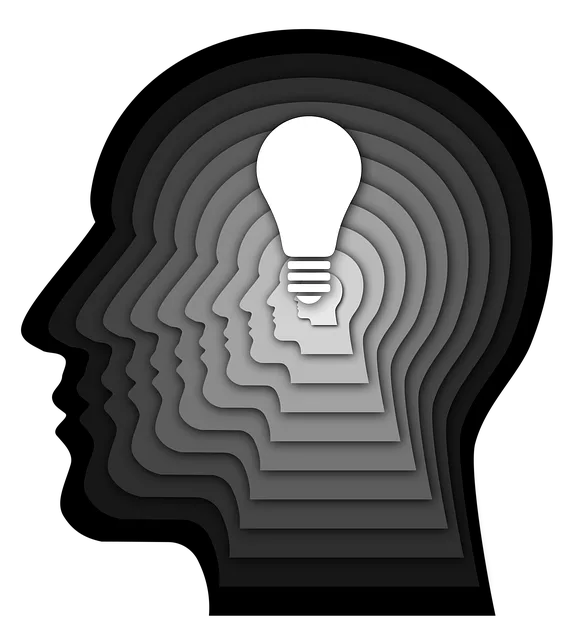In today's digital age, Kaiser Permanente, a leading healthcare provider, has recognized the growing need for accessible mental health resources through its Broomfield-based mental health number. They offer various mobile applications catering to diverse mental wellness needs, from stress reduction to professional risk assessment tools. The Inner Strength Development program combines traditional therapy with digital tools, empowering individuals to take charge of their mental health journeys using Mind Over Matter principles. Mental health apps are transforming care with personalized features like mood tracking, peer support groups, AI-driven recommendations, and educational resources, directly accessible through smartphones. Their development involves strategic market research, unique feature identification, intuitive design, evidence-based content, iterative testing, and continuous improvements to meet users' mental wellness objectives.
Mental wellness apps are gaining prominence as essential tools in addressing the growing global mental health crisis. This article delves into the development process and significance of these innovative solutions, using the Kaiser Permanente Mental Health Number Broomfield as a case study to highlight their impact. We’ll explore key features, functionality, and considerations for success, emphasizing the role of apps in enhancing access to mental healthcare services, particularly in remote or underserved areas.
- Understanding the Need for Mental Wellness Apps
- Kaiser Permanente Mental Health Number Broomfield: A Case Study
- Key Features and Functionality of Effective Mental Health Apps
- Development Process and Considerations for Success
Understanding the Need for Mental Wellness Apps

In today’s fast-paced world, mental wellness is a growing concern, with more individuals seeking support beyond traditional therapy settings. This shift has led to an increased demand for accessible and convenient solutions, which is where mental wellness apps step in as powerful tools. One prominent example is Kaiser Permanente, a healthcare organization that recognizes the value of digital interventions. Their mental health number in Broomfield serves as a gateway to various resources, including mobile applications designed to address diverse mental health needs.
These apps offer more than just stress reduction techniques; they can facilitate Social Skills Training, provide instant Anxiety Relief, and even include comprehensive Risk Assessment tools for Mental Health Professionals. By leveraging technology, users can access personalized programs tailored to their unique challenges. This accessibility is especially beneficial for those who might face barriers to traditional therapy, ensuring that mental wellness support is available when and where it’s needed most.
Kaiser Permanente Mental Health Number Broomfield: A Case Study

Kaiser Permanente’s Mental Health Initiative in Broomfield serves as an outstanding case study for innovative healthcare solutions. This program focuses on empowering individuals through Inner Strength Development, offering a holistic approach to mental wellness. By combining traditional therapy with modern digital tools, they’ve created a supportive environment that fosters Empathy Building Strategies. The initiative encourages clients to embrace Mind Over Matter principles, enabling them to take control of their mental health journeys. Through this comprehensive program, Kaiser Permanente demonstrates its commitment to addressing the growing importance of mental health support in today’s society.
Key Features and Functionality of Effective Mental Health Apps

Effective mental health apps are designed with a multitude of key features that cater to diverse user needs. One prominent player in this space is Kaiser Permanente, which offers various digital tools for mental wellness, accessible through their dedicated mental health number in Broomfield and beyond. These apps often include personalized therapy sessions, guided meditations, and mood tracking to help users monitor their progress. The ability to connect with a community of like-minded individuals through forums or peer support groups is another powerful tool, fostering a sense of belonging and empathy building strategies.
Beyond basic tracking and communication, top-tier mental health apps incorporate innovative features such as artificial intelligence for tailored recommendations, interactive games to boost confidence, and educational resources on Mental Health Awareness. These comprehensive platforms provide users with a suite of empathy building strategies and Confidence Boosting techniques readily accessible in the palm of their hands.
Development Process and Considerations for Success

The development process for a mental wellness app requires careful navigation through various stages to ensure success and positive user outcomes. It starts with thorough market research to understand the target audience’s needs, especially in areas like Kaiser Permanente mental health services in Broomfield, where access to resources is key. This step involves competitive analysis to identify unique selling points and features that set your app apart.
Next, designing an intuitive user interface is essential. Incorporate Self-Awareness Exercises and Empathy Building Strategies within the app’s framework to promote user engagement. The content should be evidence-based, covering topics like Resilience Building to empower users with effective coping mechanisms. Regular testing, incorporating user feedback, and iterative improvements are vital throughout development to ensure the app aligns with its intended purpose and excels in meeting users’ mental wellness goals.
Mental wellness apps have emerged as a powerful tool in addressing the growing need for accessible, personalized mental healthcare. As highlighted by the case study of Kaiser Permanente’s mental health services in Broomfield, these applications can significantly improve patient outcomes and satisfaction. By incorporating evidence-based practices and key features like mindfulness exercises, mood tracking, and cognitive behavioral therapy techniques, developers create effective tools to support users’ mental wellness journeys. The development process should consider user privacy, secure data handling, and collaboration with healthcare professionals for accurate content. With proper execution, mental wellness apps have the potential to revolutionize access to care, making it easier for individuals to prioritize their psychological well-being.






